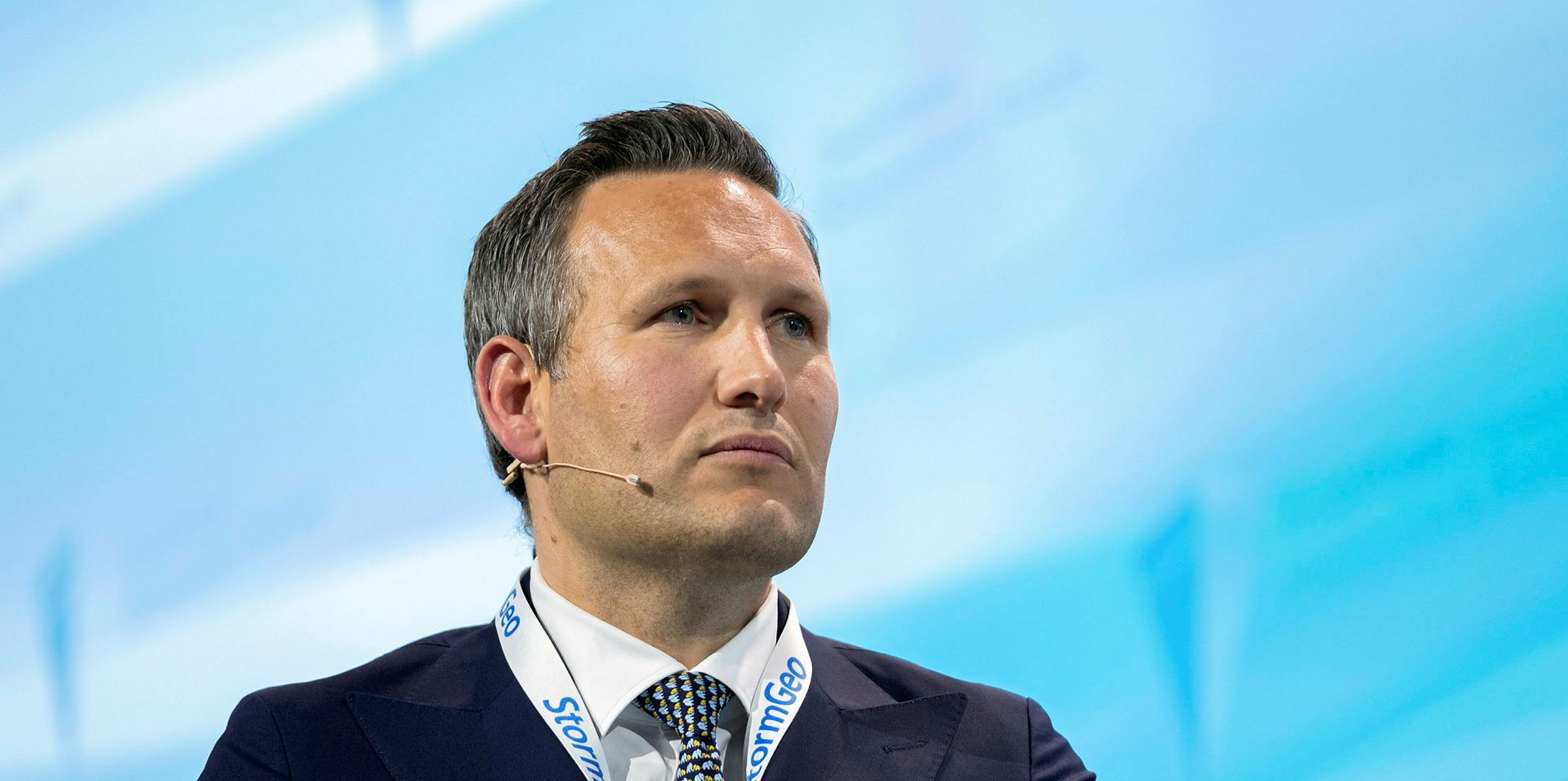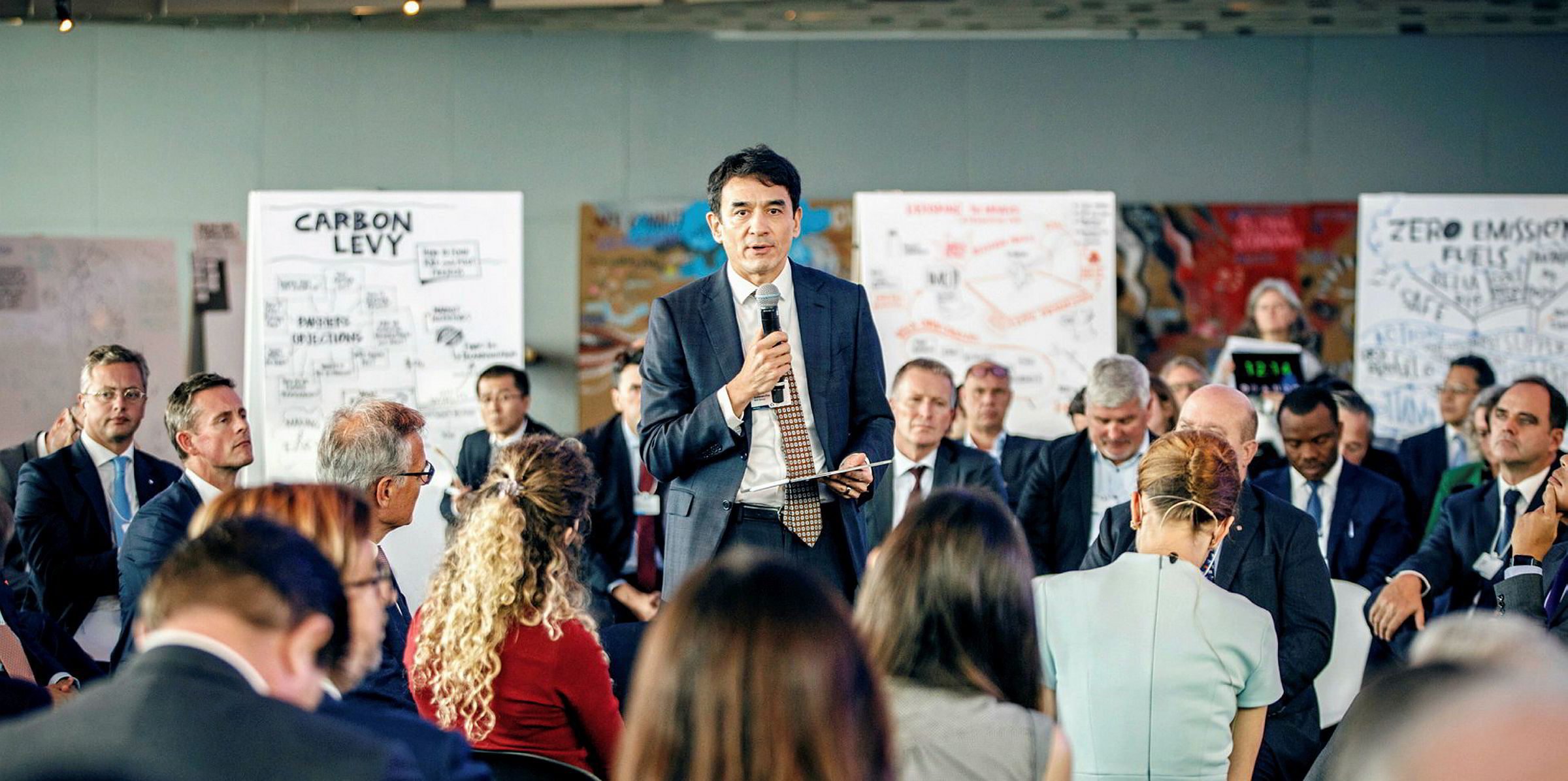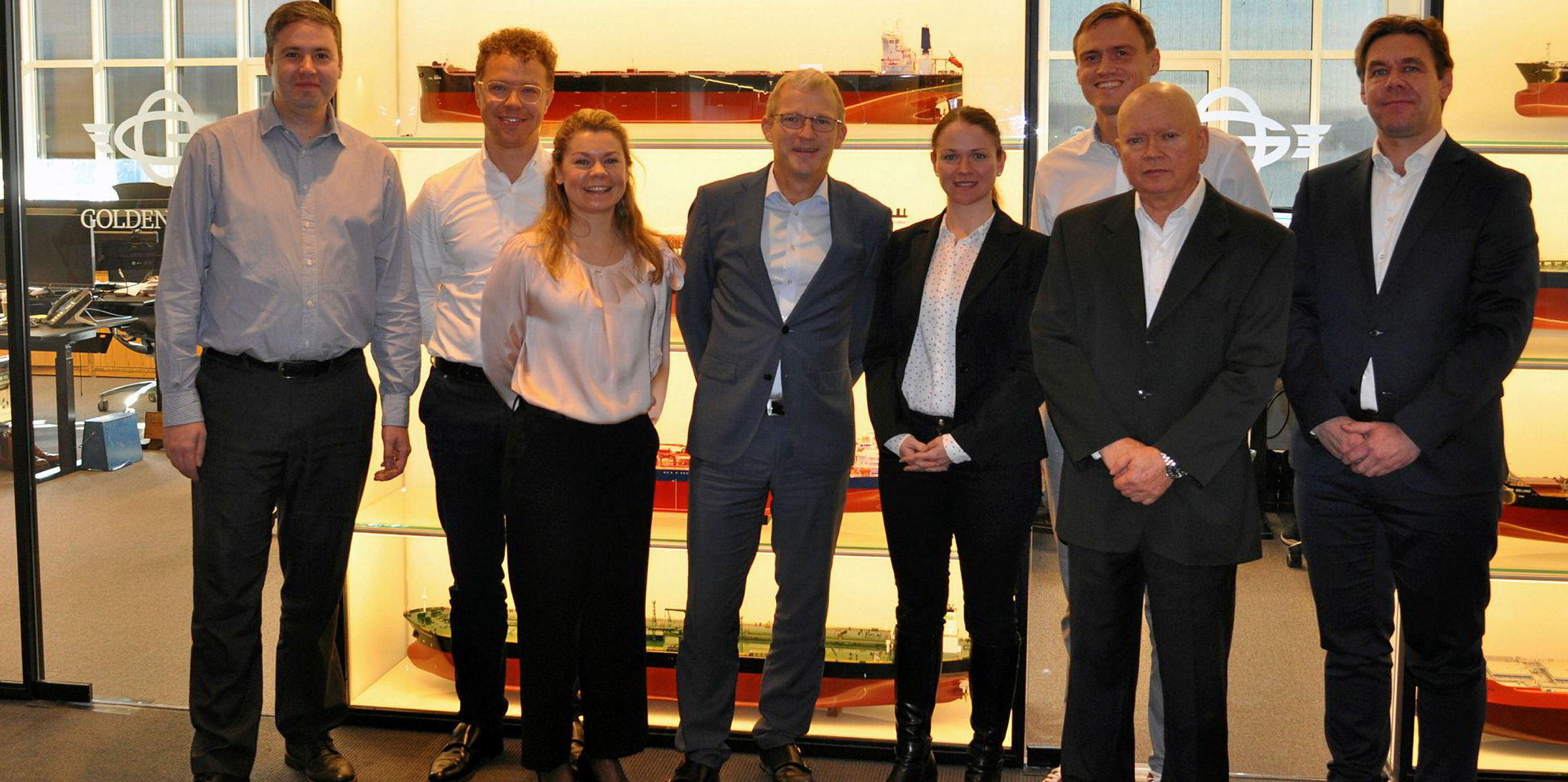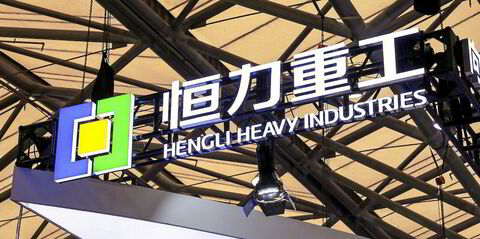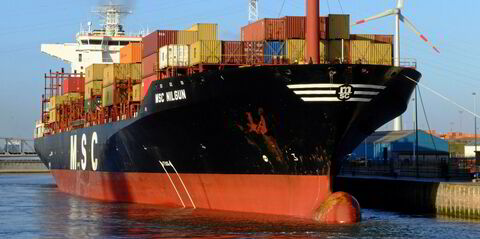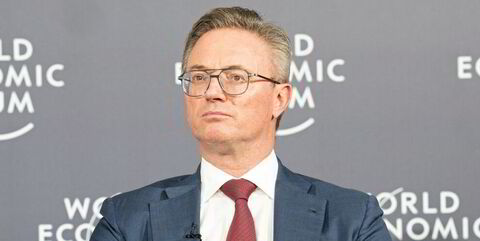John Fredriksen-backed Flex LNG has sealed a huge new vessel financing deal as it announced its first dividends.
The Oslo-listed LNG carrier owner said it had received firm commitments from a syndicate of 11 banks and the Export-Import Bank of Korea (Kexim) for a $629m facility to fund five newbuildings scheduled for delivery in 2020.
The interest equates to about 4%, with Kexim providing $329m for up to 12 years.
"In today’s bank market, $629m is quite a lot of money," CEO Oystein Kalleklev told TradeWinds.
"We have therefore packaged a deal with Korea Eximbank where they are backing 60% of the volume through loans and guarantees."
He added: "This means it’s less volume to push towards commercial banks. That said, we experienced very high demand for the deal with aggregate demand in excess of a billion dollars giving us the ability to place the deal at attractive terms."
The cash comes on top of the $650m the company has already secured in long-term debt financing earlier this year, meaning a total of $1.28bn.
CFO Harald Gurvin added: “Our track record for 2019 demonstrates our ability to secure financing from various sources at very attractive terms.
"Attractive financing terms also mean attractive cash breakeven levels, giving substantial cash flow potential from our fleet of latest generation LNG carriers.”
Flex LNG has now secured long term funding for 11 of the 13 vessels, with comfortable remaining capex for the last two in 2021, it said.
First dividends coming
The company is also paying its first cash dividend of $0.10 per share.
Kalleklev added: "The reasons are simple - we deliver on guidance in the third quarter, we have booked the fourth quarter at very good numbers and we have fairly good visibility into the first quarter of 2020.
"Additionally, we have a very solid liquidity position and financing in place for the 2020 newbuildings."
Net profit was $0.5m in the third quarter, against $1.17m a year ago.
It booked a $3.38m write-off of debt issuance costs this year.
Revenue rose to $29.8m from $19m in 2018.
Rates rising
The average time charter equivalent rate was $58,222 per day, compared to $46,266 for the second quarter.
Adjusted EBITDA came in at $21.8m, up from $11.3m for the preceding three months.
Kalleklev said: “In line with our expectations, the freight market has become increasingly tighter in the second half of 2019 resulting in much more favourable market conditions despite low gas prices.
"Flex LNG has been very well positioned for the stronger market with ships available in the spot market as well as ships on variable rates linked to these freight rates."
He added: "We have been of the view that more volumes and higher gas prices will result in more cargoes sailing eastward. The combination of longer sailing distances and floating storage due to the contango in gas prices should result in lack of available tonnage given the fact that there are more molecules than ships entering the market this year.
"Fewer available ships means exponentially higher freight rates as shipping demand is fairly inelastic."
Ahead of expectations
Fearnley Securities said the result was ahead of expectations.
"With ship management now brought in-house, the next catalyst for FLNG is to secure long-term charters," it added.
"With fleet cash breakeven sub-$50,000 per day and one-year charter assessments at $95,000, FLNG would generate nearly 20% return on equity on these contracts.
FLNG remains its top LNG pick.
The financing represents about $125m per vessel and includes an accordion of $10m per vessel in case of long-term charters, it added.
Outlook "compelling"
Looking ahead, Flex LNG said the prospects for LNG shipping demand remains compelling due to rapidly increasing demand for LNG.
"The market has absorbed new tonnage as it has arrived, and despite lower than expected tonne mile growth due to muted US-Asia trade and limited arbitrage opportunities, we believe that the market is reasonably balanced," it added.
"The long term outlook for the industry continues to be well supported, and we believe that Flex LNG is well positioned to capitalise on the global shift for cleaner energy."
